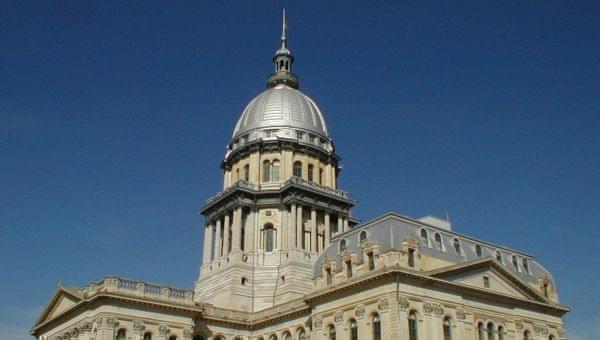Governor Kills 911 Legislation Supported by Chicago

The Illinois Statehouse in Springfield. Wikipedia Commons
Emergency dispatchers, phone companies, and lawmakers from both parties were in agreement. The fee on cell phone bills needed to increase — to keep 911 services going and to add new technology mandated by Illinois.
Rep. Chad Hays, R-Catlin, says he was not part of the talks, but he was ready to lend his support when talks broke down.
“My understanding of where it bogged down was this notion that there were perhaps disagreement between the City of Chicago and others,” Hays said.
Rep. Brandon Phelps, D-Harrisburg, says the “others” was the governor’s office — and industry members in the negotiations say that was indeed the reason the agreement disappeared.
The nixed deal involved letting Chicago increase its fee per phone from $3.90 to $5. All other cell phone bills in the state would see an increase of $1.50 from 87 cents.
“Evidently the way I’m understanding is that the governor pretty much pulled the Republicans and said ‘We don’t want to give Mayor Emanuel any more money,’” Phelps said.
Eleni Demertzis, a spokeswoman for Rauner, did not directly address the charge of interference. She says the governor supports the plan now in its stead: a two-year extension of the current fee rates.
Rauner and Emanuel have fought over much larger issues including Chicago teacher pensions, school funding, and city finances.
Ralph Caldwell, the 911 director in Champaign County says the surcharge on phone bills is supposed to pay for most of the cost for 911 services, but dispatchers are receiving $5 million less a year than expected.
“So now every year we’re asking for more money from local budgets,” Caldwell said.
Emergency dispatchers are also required under previous legislation to implement new technology that can locate cell phone callers, receive text messages, and automatic crash alerts by 2020.
